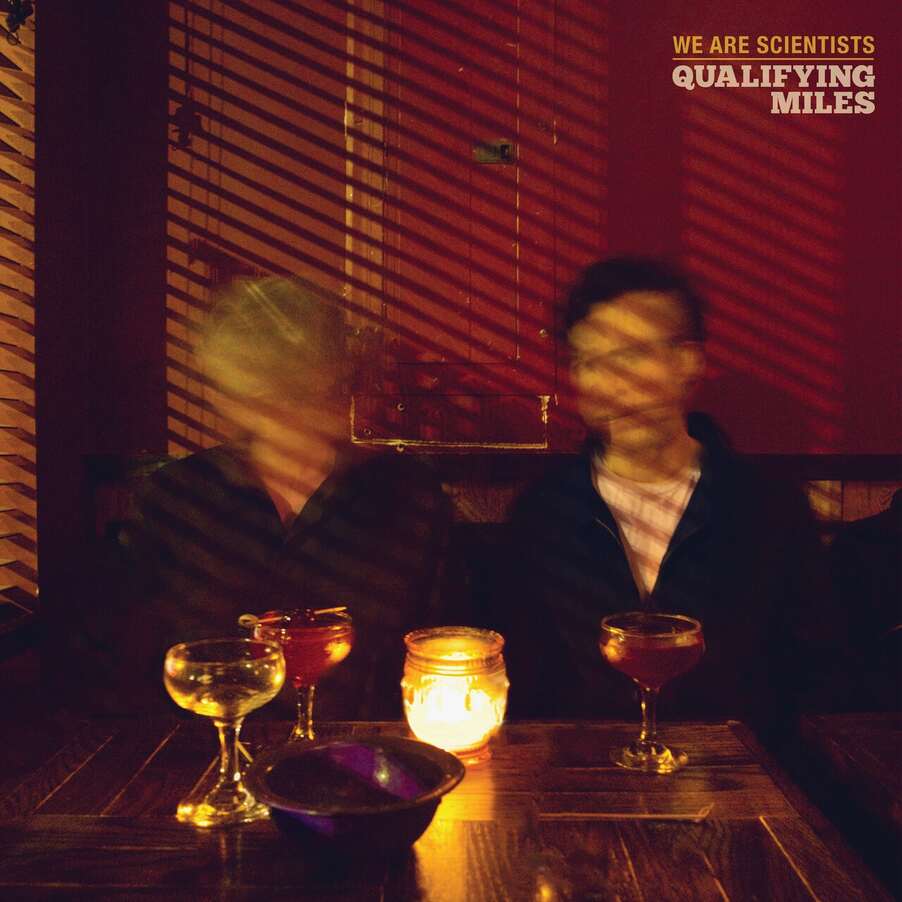Twenty years after their breakthrough with “With Love and Squalor”, We Are Scientists prove that consistency and innovation can go hand in hand. The American duo of Keith Murray and Chris Cain has delivered their ninth studio album, “Qualifying Miles”, a record that looks both backwards and forward. After years of studio maximalism, they deliberately chose a stripped-down approach: a ‘band in a room’ sound that returns them to their roots in 1990s guitar music.
The album opens with “A Prelude To What”, a shoegaze-tinged track that immediately sets the tone for what’s to come. Murray’s recognisable vocals float over jangly guitar chords, while the line “Your window’s closing, keep it open” functions as a metaphor for holding on to youthful hope despite the passage of time. This opener feels strategically placed as if the band is deliberately building a bridge between past and present. The production is straightforward and unpolished compared to their previous work, which enhances the emotional impact of the songs.
Musically, “Qualifying Miles” moves comfortably between various genres from the ’90s and early 2000s alternative scene. Britpop, emo, and even pop-punk influences are audible, but always filtered through the distinct We Are Scientists lens of sharp melodies and intelligent lyrics. “Please Don’t Say It”, the first single, combines the gleaming propulsion of Yeah Yeah Yeahs with a guitar solo reminiscent of The Cult. It’s exactly the kind of anthemic track the band has always excelled at.
The real highlights of the album lie in its emotional depth. “The Same Mistake” uses splashing, echoing snares reminiscent of classic ’80s pop, while the lyrics centre around the theme of repeating the same mistakes in relationships. Murray’s voice sounds vulnerable yet determined – a combination the band has always mastered well. “At The Mall In My Dreams” might be the most nostalgic track, in which childhood and adulthood collide in a message about staying authentic. “The Big One” contains what Murray claims is his favourite guitar solo ever, and that claim is not unfounded.
Thematically, the album constantly revolves around nostalgia, loss, and the bittersweet ache of the past. Tracks like “Dead Letters”, “What You Want Is Gone”, and “A Lesson I Never Learned” explore different aspects of transience and missed opportunities. Yet the band avoids sentimentality through their trademark humour and self-deprecation – elements that have defined their personality for two decades.
Not all songs are equally memorable. A few tracks in the album’s midsection feel too safe and lack the edge that defines the best We Are Scientists songs. “I Could Do Much Worse” has a pleasant flow but lingers in predictability, while “I Already Hate This” – despite interesting storytelling – doesn’t fully convince with its more mainstream sound.
“Qualifying Miles” feels like a band reflecting on their journey without being trapped by the past. It’s not a victory lap but rather a renewed introduction to what makes We Are Scientists special: their ability to create catchy, intelligent rock that resonates with both head and heart. For a band that’s been around this long, it sounds surprisingly fresh and urgent. It proves that musical maturity doesn’t have to come at the expense of energy or relevance. (8/10) (Grönland Records)

